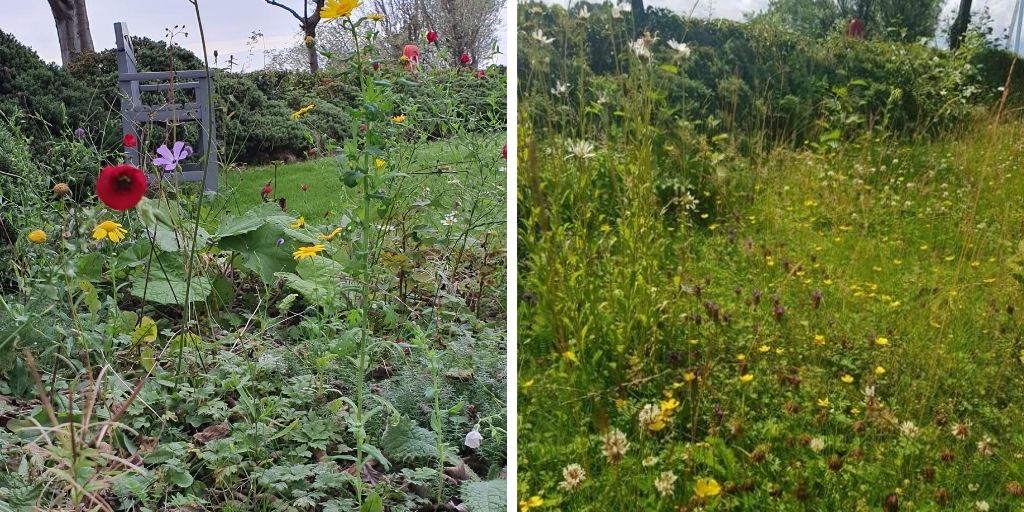
The B-Lines network for England, which aims to help restore populations of insects, has added the Climate Action North Pollinator Parks project located at the North East Business and Innovation Centre (BIC) to its map.
B-Lines was launched by conservation charity Buglife and will create a vast interconnected web of potential and existing wildflower habitats across the country in response to catastrophic declines of wild pollinators in recent years.
The Climate Action North Pollinator Parks initiative also aims to redress the alarming decline in wild pollinators by rewilding and transforming outdoor areas on retail and business parks into ecological oases to help bees, butterflies and birds thrive and flourish.
The first project was launched in Spring 2019 at the BIC in Sunderland when a volunteer group, sponsored by Sunderland Enterprise Park and the BIC, created two small gardens and a mini-meadow, planting around 35 different species of British native ‘pollinator-friendly’ wildflowers including Red Campion, Moth Mullein, Primrose, Oxeye Daisy, Basil, and Dandelion. Two bird boxes were also installed in nearby trees and within a month of doing so a family of Blue Tits moved in and successfully nested.
The area is now established as a safe haven for the struggling insect populations; the perennials are flowering really well each year, and the unmown mini-meadow saw six Bee Orchids naturally bloom.
Buglife has provided a map of the wildflower network and is asking communities, businesses, public bodies and farmers, as well as keen gardeners, to help create wildflower areas along the B-Lines.
The charity is also urging people to help make gardens and outdoor spaces more wildlife-friendly by growing more shrubs, trees and flowers, cutting the grass less often, not disturbing insect nest and hibernation spots and not using pesticides.
Recently, a major report by the Wildlife Trusts highlighted the scale of the plight faced by insects due to human activity. It said that over the last 48 years, 41 per cent of the UK’s wildlife species had suffered decreases in numbers with main causes of this decline including habitat loss and industrial-scale use of pesticides.
Climate Action North East Managing Director, Sharon Lashley said: “Pollinators play a crucial role in food production and agriculture and are also vital to our ecosystem. We all have a clear responsibility to nurture biodiversity and our Pollinator Parks initiative demonstrates how we can practically support and care for our wildlife and repair broken ecosystems.”
David Howell, North East BIC added: “We’re delighted to hear that the Pollinator Park features on the B-Line map. The initiative was a very worthy project to be involved in and we were very proud to host the first garden of its kind which has continued to bloom over the last year.
“We pride ourselves on improving the environment for the pollinating species as well as the people based at our centre and since the project first launched, we’ve been inspired to create smaller rewilding gardens across our 14 acre site.”


